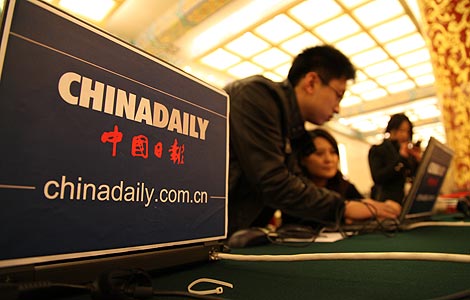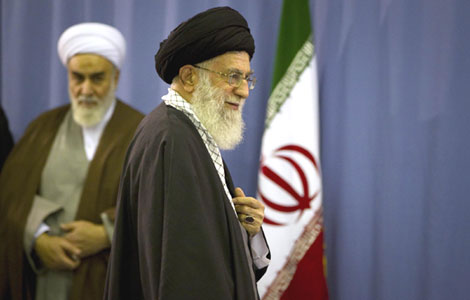Government to drive more Chinese-made cars
Updated: 2012-03-02 18:41
(Xinhua)
|
|||||||||
GUANGZHOU - China's domestic independent-brand cars are expected to account for the vast majority of vehicles available for government use, under new draft regulations released by the Ministry of Industry and Information Technology (MIIT).
The draft, published to gather public feedback until March 9, refers to the vehicle procurement catalogue made available to government departments. Unlike the previous catalogue released in 2009, foreign brands such as Audi, Volkswagen, Toyota and Buick do not feature in the new version, which lists about 400 models.
And the only joint-venture car brand selected is Zhengzhou Nissan, which sees its multi-purpose vehicles included in the list.
According to insiders, the new catalogue is the result of efforts to cut unnecessary expenditure and energy consumption, rather than a desire to discriminate against foreign car brands.
These cost and environmental considerations are reflected in the draft's specification that vehicles selected for government use should have an engine displacement of no more than 1.8 liters and cost no more than 180,000 yuan.
The after-subsidy price of selected new-energy vehicles, including electric and plug-in hybrid vehicles, shall also be no more than 180,000 yuan.
"Nearly all joint-venture car brands were outside those limitations. And the domestic brands are selected mainly for their price factor," said Zhang Xuan, manager of the public relations department of Chinese automaker BYD Co. Ltd..
According to Zhang, the price of Chinese domestic cars is generally about 20,000 yuan (about $3,176) lower than joint-venture brands with the same displacement.
China plans to further reform the government's use of cars, with the purchase and maintenance of official vehicles costing a huge sum.
The draft's specified price limit of 180,000 yuan represents a decrease of around 30 percent on the 250,000 yuan nominated in the 2009 version.
Moreover, an automaker that supplies vehicles for government must have stable research and development (R&D) and product improvement capabilities, and its R&D expenditure in the last two years must constitute at least 3 percent of its main business revenues, according to the regulations.
Some joint-venture car enterprises are just "large assembly shops" for foreign brands. In that case, they may not make it into the procurement catalogue, said Dong Yang, secretary-general of the China Association of Automobile Manufacturers.
And the new policy sends a clear signal that the Chinese government is encouraging joint-venture car brands to increase their research investment and strengthen technology transformation in China, Dong added.
With government accounting for only a tiny proportion of all foreign and joint-venture car sales in China, the new catalogue is also designed to inspire the public to change their attitude toward buying cars, according to insiders.
If officials take cars with lower emissions and price, a large portion of Chinese common customers will likely change their consuming choices, said Xu Minfeng, an analyst with Central China Securities.
"We will not treat the government car market as our 'main battlefield' in market competition," said BYD's Zhang.
As government procurement covers only about 3 percent of China's massive vehicle market, the new catalogue offers domestic car brands a chance through encouragement and guidance, he added.
Hot Topics
Wu Ying, iPad, Jeremy Lin, Valentine's Day, Real Name, Whitney Houston, Syria,Iranian issue, Sanyan tourism, Giving birth in Hong Kong, Cadmium spill, housing policy
Editor's Picks

|

|

|

|

|

|







